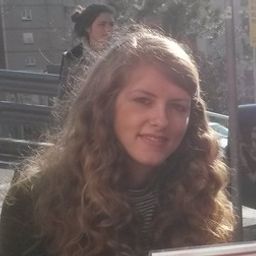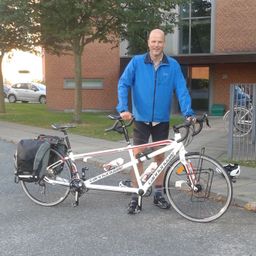Heritage Futures / Utopian Currents II
My Session Status
These logics of the future speak directly—as utopianism always does—to different social and political imaginaries.
• How do such temporal logics relate to alternative heritage scenarios?
• What kind of politics is implied by ideas of "forever, for everyone" (UK National Trust slogan)?
• What sort of imaginaries might open up political potentials for heritage and have implications for decision-making processes?
• How might we diagnose utopian tendencies in heritage practices?
This session invites contributions on utopian currents in the field of critical heritage studies. The perspective of historical futures will be used to shed light on a range of case-based topics, as well as raising the question of our own present, and how contemporary heritage practices might hold open or foreclose possible futures.
The session encourages proposals on themes including, but not limited to:
• Heritage futures based on current practices.
• The social and political imaginaries involved in heritage practices and writing about heritage.
• Logics of time and the negotiation of the past and the future within heritage studies (through, for example, conservation, interpretation, participation).
• Critical heritage approaches to the temporal politics of heritage.
• Diagnoses of utopian currents in heritage case studies.
• Discussions of heritage in relation to the hopes/fears of particular groups or communities of people.
• Examples of utopian interventions oriented toward change, or alternative heritage decision-making processes.
Sub Sessions
Les banlieues rouges ont été durant les Trente Glorieuses un lieu d’expérimentation architecturale. En particulier, les architectes prolifiques, notamment Jean Renaudie (1925-1981, Prix d’architecture en 1978) et ses disciples, y ont construit des ensembles utopiques proposant une alternative aux grands ensembles standardisés, une conception militante du vivre-ensemble et une prise en compte pionnière de l’environnement. Aujourd’hui, ces quartiers populaires sont devant une dévalorisation ...
The classical science and technology museums, including the likes of Deutsches Museum, Munich, or Science Museum, London, have been spaces to preserve and communicate the techno-scientific heritage of the nation. While the objects on display allude to past achievements, the takeaway idea for the visitors certainly includes that of the continuous technological prowess of that nation. In this paper however, I will depart from the traditional science museum premises to bring science centres u...
This paper will deal with the problem of making sense of the future and how it relates to heritage-making: how are particular images of the future used in the heritage-making processes of today? The relevance of this for critical heritage studies relates to the necessary relation between the past and the future, and a future where the issue of global warming will imply a new context for valuing the past. It has been argued that we now live in the age of Anthropocene, that is, the human-dom...
In his socialist science-fiction novel, “News From Nowhere,” William Morris expresses a utopian dream of “radical nostalgia.” Heritage is deployed as a future-past, through which the follies of late nineteenth century imperialism and industrial modernity are cast as a provocation toward building a transformative politics in the present. Such an ambition to build a sense of heritage, which can impel a potent prospective memory of conflict and turmoil, is resonant within the popular imaginin...





